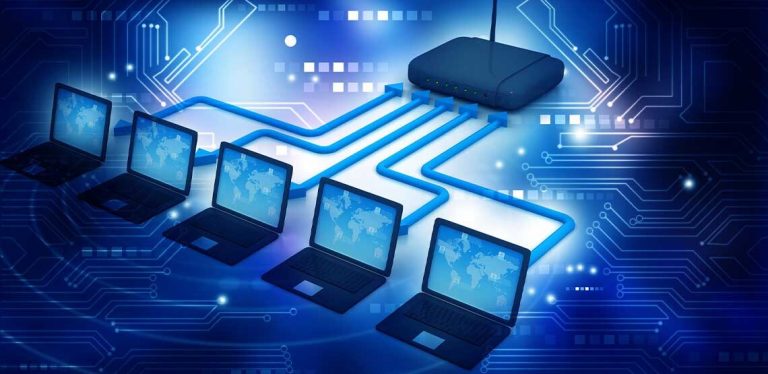Tips for Speeding up Your Computer
Computers have come a very long way since the first modern-day computer was invented in 1943, but they still aren’t perfect. They perform their jobs well, but a number of factors can cause your systems to suffer from slowdown, so we offer steps on how to speed up a computer. And if you are online for an extended period of time, you want your computer to be as fast as possible. No one likes lag and freezing.
There are a lot of reasons your computer might be slowing down, but luckily, pretty much all of these potential flaws have easy fixes. Some of them might require you to be more technically inclined, but even if you are not, that’s what we are here for!
Let's go over how to speed up a computer.
Potential Problem: Too Many Browser Windows Open
No matter how great your computer is, having 30 or more browser windows open is not a good idea. The more windows you open up at once and within a short span of time, the harder your computer has to work.
This problem has an easy fix; just close some browser windows and keep the tab count to a reasonable number. Five or six is good.
We decided to start you off slow, so we’re tossing you a few softballs first. The problems will get more intricate later on.
Potential Problem: Using a Subpar Web Browser
Not all web browsers are created equal and some of the pack have been left behind, so if you’re experiencing some consistent slowdown, then you might want to consider switching to a new browser.
If you are still using Internet Explorer in 2019, I just have one question for you: why?
Potential Problem: Cluttered Cache
You know how when you start to enter the domain name of a website that you frequent, it fills itself in automatically? That’s your computer’s cache at work. It speeds up browsing a fair bit thanks to this feature. However, the cache is a double-edged sword.
It’s possible for your cache to speed up your browsing experience, however, if your cache is too full, then your computer will need to sift through more saved data to find the website you are looking for.
We understand keeping social media websites and your favorite YouTube channels, however do you really need hundreds of pages of Google search results of cat pictures in your cache? Probably not. Periodically go into your cache and delete what isn’t necessary.
Potential Problem: Too Many Background Programs/Functions
This one should not come as too much of a surprise. If your computer cannot handle multiple web pages being open at once without suffering from some slowdown, what makes you think it can handle multiple functions?
Just like with web pages, keep your activity to a reasonable level. Don’t have YouTube, Netflix, Steam, GOG and League of Legends booted up all at once.
Potential Problem: Too Many Access Browser Extensions
Same deal as with access web pages and background programs: too much of a good thing is a bad thing. Go through all the extensions you have in your chosen browser, and if you have some plug-ins that you don’t really need, get rid of them.
Potential Problem: VPN Has a Poor Connection Speed
If you use a VPN, which anyone who uses the internet in 2019 should be using, then the tool helping to keep you safe online might be slowing down your computer.
VPNs are not perfect and can cause your computer’s connection speed to decline. VPN services have varying degrees of connection speed and you might just happen to have a VPN that is not the greatest in this field. Be sure to run some speed tests to see if your VPN is up to par.
You May Also Like:
Related Search Topics (Ads)
Potential Problem: Antivirus Software Is Doing Too Much
Antivirus software is great. It acts like Osmosis Jones for your computer and keeps viruses at bay. However, an uncool thing that antivirus software has a habit of doing is sending random scan popups to your screen and slowing down what you are currently doing.
Potential Problem: You Have a Virus
Either you don’t have any antivirus software and left yourself exposed, or a stray virus got by your guard — either way, viruses can obviously cause your computer to slow down among other things. Use a virus scanner to automatically find and eliminate the virus, or if need be, you can manually delete it yourself.
Potential Problem: Lack of Hard Drive Space and/or RAM
Without a healthy amount of hard drive space and/or RAM, your computer will start to experience some slowdown as it chugs along performing its routine functions. Either delete some things to clear up space, or buy some more space.
Potential Problem: Low Power Mode Is On
Low power mode is a secondary mode you can put a computer or laptop into to conserve power. This is useful if you’ll be away from an outlet for a while and have no way of reaching an outlet anytime soon. This mode isn’t without drawbacks though; some functions might be too hard on your system when you are in low power mode.
Potential Problem: Computer Is in Need of Some Upgrades
Computers are long-lasting machines, but as their functionality continues to increase, so too do the system requirements to perform these functions.
If you are a PC gamer, you will know that every game has minimum system requirements and that if they are not met, your gaming experience will suffer. Don’t expect a computer from 2009 to run a 2019 AAA title in Ultra 4K. Factory line computers are more prone to being left behind than custom-built gaming rigs by the way.
This applies to everything you do online, though, not just gaming. It might be high time for you to upgrade your systems. Luckily, computers are all components so you don’t need to throw the whole computer away. Learning how to build/modify your computer is a very rewarding experience and can save you a lot of money as well.

